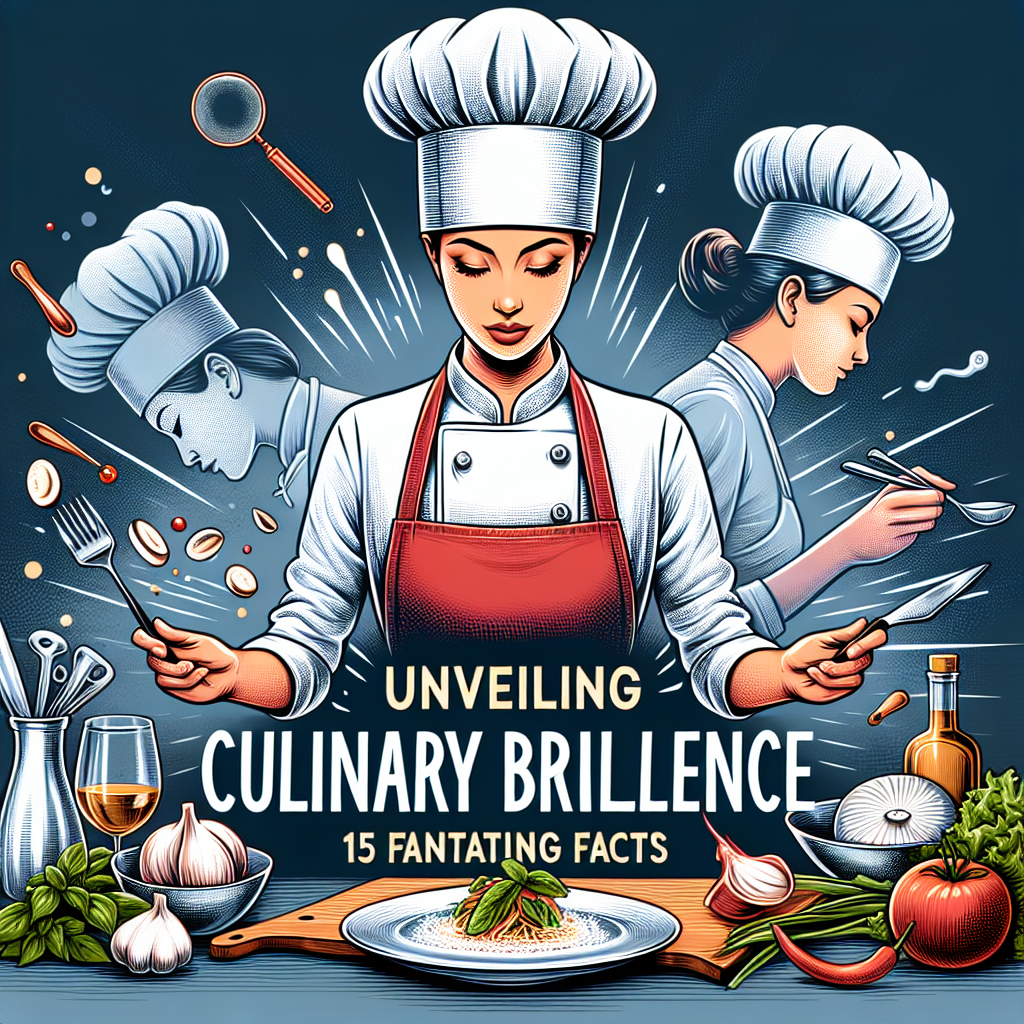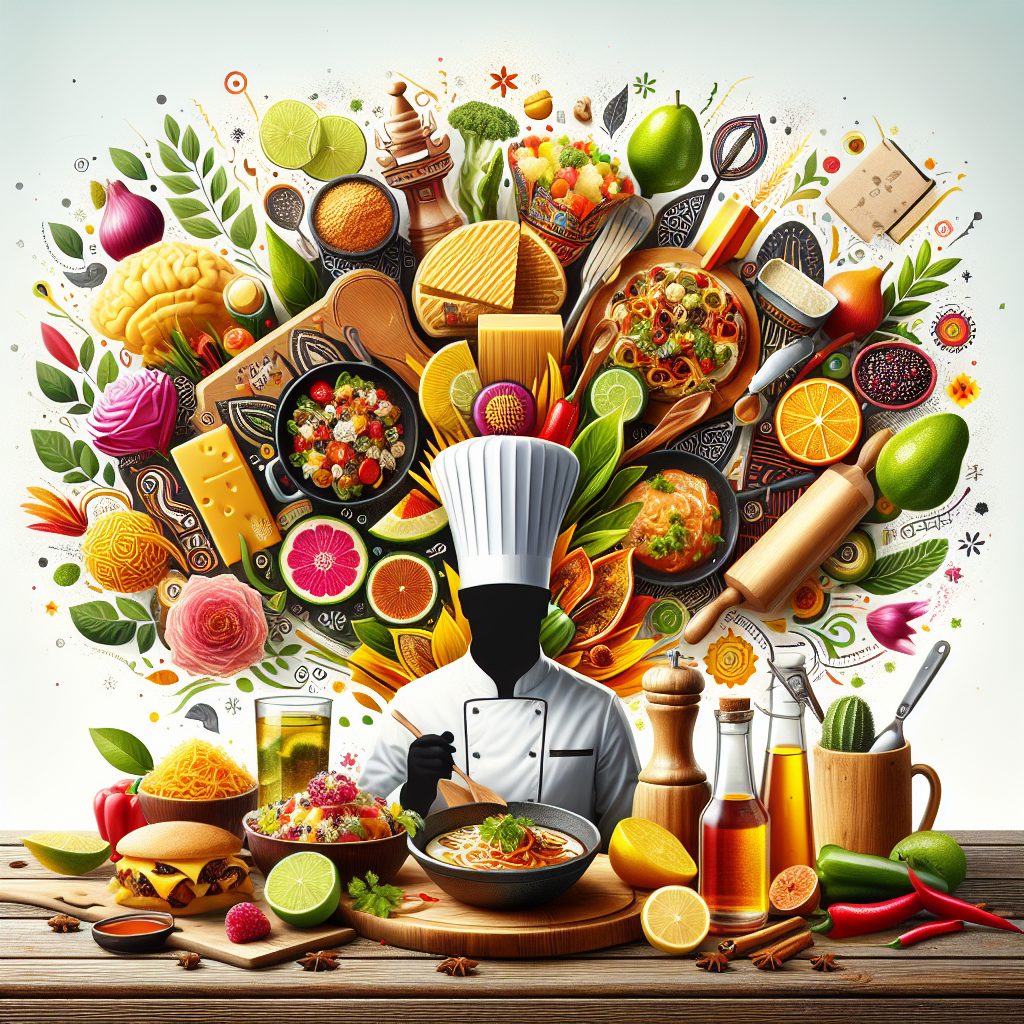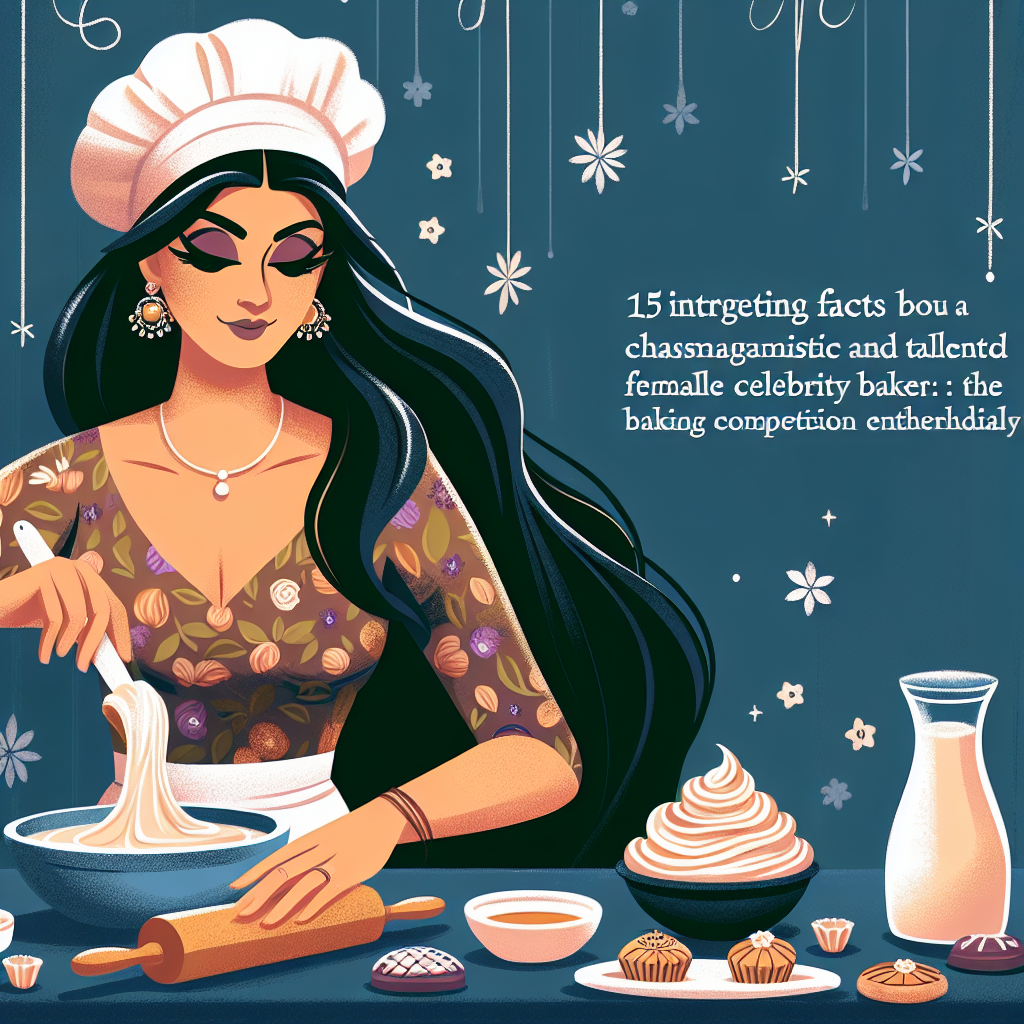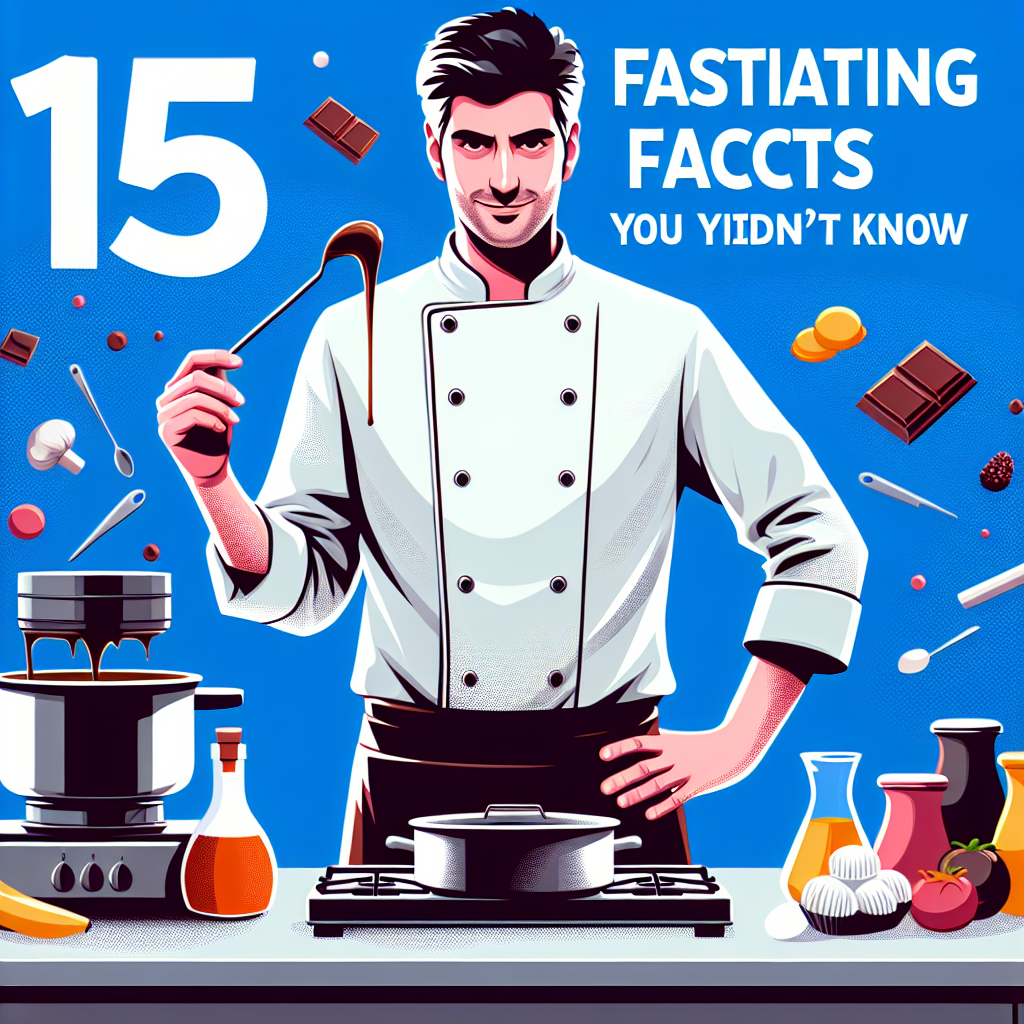Top 15 Facts About Anthony Bourdain: A Chef Who Changed the Culinary World
Anthony Bourdain, a name synonymous with culinary adventure, exploration, and storytelling, left an indelible mark on the world of food and travel before his untimely passing in June 2018. As a chef, author, and television personality, Bourdain inspired millions with his unfiltered take on life, food, and culture across the globe. Below are 15 significant facts that highlight his journey, philosophy, and impact.
1. Early Life and Education
Anthony Michael Bourdain was born on June 25, 1956, in New York City. He spent his childhood in Leonia, New Jersey, where he developed a love for food, spurred on by family trips to France. Bourdain attended Vassar College but eventually dropped out to pursue a career in the culinary arts. He graduated from the Culinary Institute of America in 1978.
2. The Culinary Career
Bourdain’s culinary career began in earnest at various restaurants in New York City, including the iconic One Fifth Avenue. However, it was his role as the executive chef at Brasserie Les Halles, a French restaurant in Manhattan, that launched him into the spotlight. His experience there would significantly inform his writing and television career.
3. Kitchen Confidential: Adventures in the Culinary Underbelly
Bourdain’s breakthrough came with the publication of his bestselling memoir, “Kitchen Confidential: Adventures in the Culinary Underbelly,” released in 2000. The book was a gritty and honest account of life in professional kitchens, detailing everything from the addiction to substance abuse that plagued some of his colleagues to the realities of working in high-pressure environments. It became a cultural phenomenon that changed perceptions of chefs and the culinary industry.
4. Television Pioneer
Bourdain transitioned seamlessly from writing to television, becoming a pioneer in culinary-themed travel shows. His first show, “A Cook’s Tour,” premiered on the Food Network in 2002. However, it was “No Reservations,” which aired on the Travel Channel from 2005 to 2012, that solidified his status as a television icon. The program showcased Bourdain’s adventurous spirit as he explored the world’s cuisines and cultures.
5. Travel and Exploration
Bourdain’s travels took him to over 80 countries, through bustling markets, remote villages, and fine dining establishments. He was not merely a tourist; he immersed himself in the local cultures, enjoying street food one moment, and fine dining the next. His genuine interest and respect for the cultures he visited resonated with audiences, offering them a more profound understanding of food’s role beyond sustenance.
6. The Importance of Storytelling
For Bourdain, food was more than just a meal; it was a medium for storytelling. He believed that every dish had a story, revealing its cultural and historical context. In his shows, he often highlighted the personal stories of the people behind the food, emphasizing the connection between cuisine and culture.
7. Advocating for Social Issues
Bourdain used his platform to shed light on social issues and cultural injustices. He was an outspoken advocate against racism, xenophobia, and inequality. Through his travels, he often explored the complexities of geopolitical issues, using food as a lens to understand various cultures and their struggles.
8. Personal Struggles
Like many creative individuals, Bourdain faced personal challenges throughout his life. He battled addiction and substance abuse, which he candidly described in his writings. In a way, he used his demons to fuel his creativity, allowing him to connect with audiences on a deeper level.
9. Culinary Collaborations
Bourdain left his mark on the culinary world through collaborations with numerous chefs and restaurants. His partnerships included his role as an executive producer for the show "Parts Unknown" on CNN, where he curated experiences that showcased the vibrancy of global cuisine. Bourdain certainly influenced the next generation of chefs and culinary storytellers.
10. Diverse Cooking Philosophy
Bourdain was known for his eclectic culinary philosophy. He didn’t adhere strictly to traditional culinary techniques or cuisine types; instead, he celebrated the diversity of flavors across the globe. He often emphasized the beauty of simple, honest food, enjoying street vendors as much as Michelin-starred restaurants.
11. Vulnerability and Honesty
Bourdain’s vulnerability and honesty endeared him to his fans. He was unafraid to discuss his flaws, failures, and fears publicly, making him a relatable figure for many. His ability to express nuances in human experiences resonated with viewers, making his storytelling that much richer.
12. Legacy of Authenticity
Bourdain’s legacy is one of authenticity—he encouraged everyone to be true to themselves and embrace their individuality. Even after his passing, his influence continues through chefs and food enthusiasts who advocate for honest cooking and storytelling.
13. Awards and Honors
Throughout his career, Bourdain received numerous awards for his culinary work and television shows. He won multiple Emmy Awards, a Peabody Award, and even received the American Academy of Arts and Letters Honor. His contributions to the culinary community transcended television; his written work earned him a spot in the hearts of readers worldwide.
14. Tragic Final Days
Tragically, Bourdain’s life came to an abrupt end on June 8, 2018, in Kaysersberg, France, while filming for “Parts Unknown.” His death shocked fans, friends, and family alike, prompting conversations about mental health and the pressures faced by creatives. He left behind a legacy that encouraged vulnerability and openness regarding mental health struggles.
15. The Impact of Bourdain’s Work
Anthony Bourdain revolutionized food television and inspired a generation of chefs and food enthusiasts to explore and appreciate culinary diversity. His work transcended the boundaries of culture, cuisine, and personal experience. In a world where food often has the power to unite divided communities, Bourdain’s legacy will forever be cherished.
FAQs About Anthony Bourdain
1. What was Anthony Bourdain known for?
Anthony Bourdain was known for being a chef, author, and television personality who explored different cultures through food. He was best known for his books and hit TV shows like “No Reservations” and “Parts Unknown.”
2. What was the impact of "Kitchen Confidential"?
“Kitchen Confidential” provided a raw and honest look into the culinary world, changing the public perception of chefs and restaurant life. It became a bestseller and has inspired countless chefs and culinary enthusiasts.
3. How did Bourdain approach food and culture in his shows?
Bourdain believed in immersing himself in the culture he was exploring. He showcased not only the food but also the stories, people, and histories behind each dish, which enriched the viewer’s understanding of the region.
4. What were some of Bourdain’s favorite foods?
Bourdain had a diverse palate and loved exploring local street food. He had a particular fondness for ethnic dishes, offal, and anything that told a story about the culture.
5. Why did Anthony Bourdain’s passing impact so many people?
Bourdain’s death impacted many because he was a beloved figure who shared his vulnerabilities and fostered connections through food and culture. His influence on mental health discussions and the culinary world continues to resonate with fans around the globe.
6. Did Bourdain win any awards for his work?
Yes, Bourdain won multiple awards throughout his career, including several Daytime Emmy Awards and a Peabody Award, recognizing his storytelling and contributions to the culinary arts.
7. What did Bourdain think about food trends?
Bourdain was often critical of food trends that he felt were gimmicky or insincere. He valued authenticity in food and believed in celebrating traditional cooking methods and the stories behind dishes.
8. How did his travels influence his culinary philosophy?
Bourdain’s travels allowed him to experience food across different cultures, shaping his belief in the importance of authenticity and diversity in cuisine. His interactions with chefs and locals deepened his understanding of food as a vital expression of culture and identity.
9. What is Anthony Bourdain’s legacy?
Bourdain’s legacy is one of exploration, honesty, and cultural appreciation. He inspired others to travel, embrace culinary diversity, and engage in meaningful conversations about food’s role in culture and society.
10. What is a good way to remember Anthony Bourdain?
To remember Anthony Bourdain, one can explore the cuisines he loved, watch his shows, read his books, and continue advocating for the appreciation of diverse cultures and culinary experiences.
In conclusion, Anthony Bourdain was not merely a chef; he was a storyteller, a cultural ambassador, and an advocate for honesty and understanding within the culinary world. His narrative continues to resonate, encouraging the appreciation of food as a vital part of the human experience.















Leave a Reply